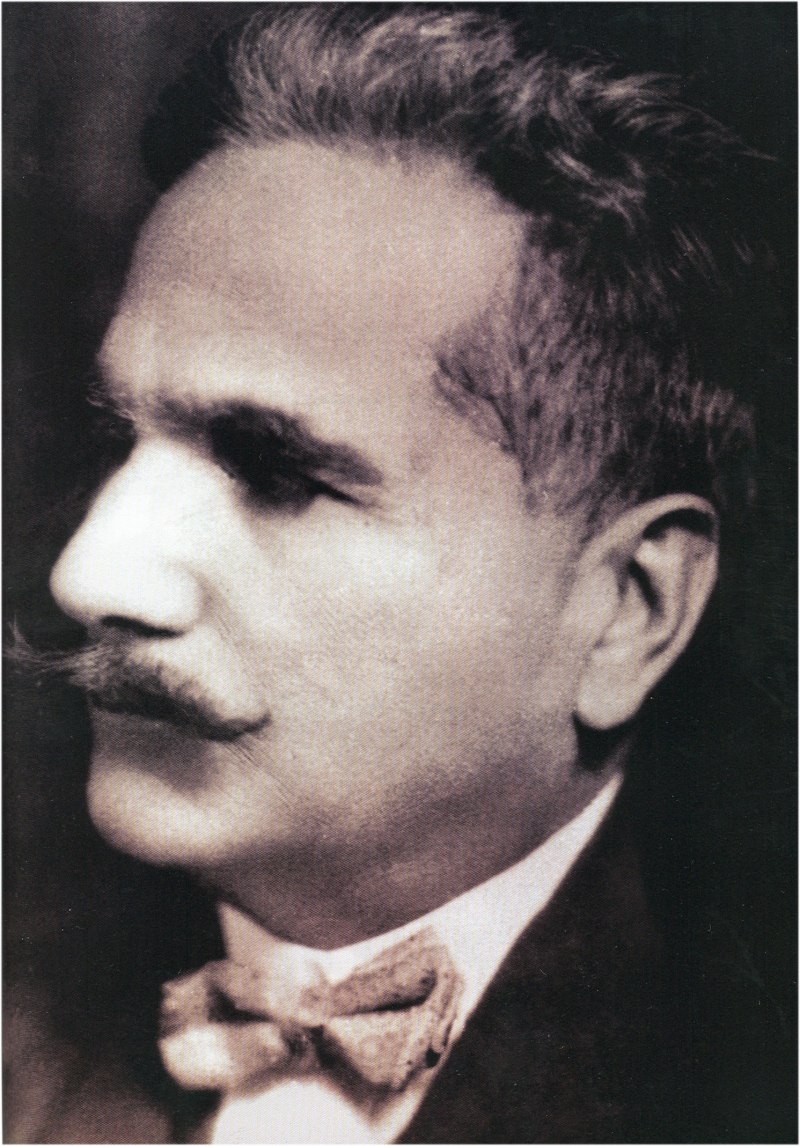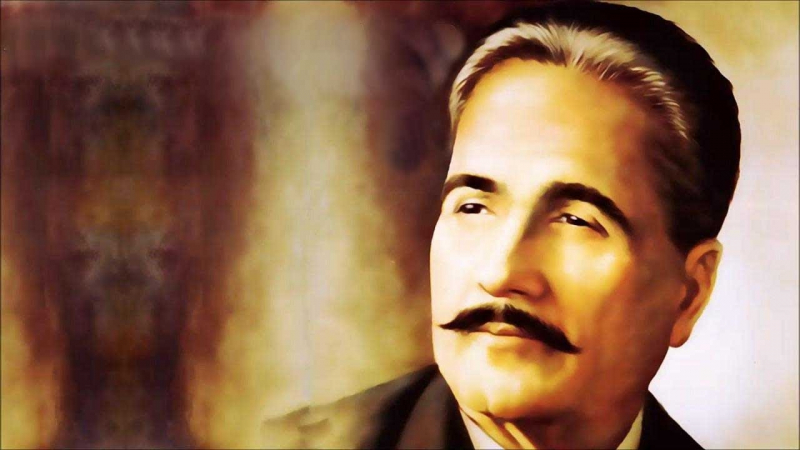Muhammad Iqbal
Sir Muhammad Iqbal Kt (9 November 1877 - 21 April 1938) was a South Asian Muslim writer, philosopher, and politician, whose Urdu poetry is regarded as among the greatest of the twentieth century, and whose vision of a cultural and political ideal for the Muslims of British-ruled India fueled the desire for Pakistan. He is commonly referred to as Allama.
Iqbal was born and raised in Sialkot, Punjab, in an ethnic Kashmiri Muslim family, and received his B.A. and M.A. degrees from the Government College Lahore. From 1899 to 1903, he taught Arabic at the Oriental College in Lahore. During this time, he wrote a lot. Among the popular Urdu poems from this period are Parinde ki Faryad (A Bird's Prayer), an early meditation on animal rights, and Tarana-e-Hindi (The Song of India), a patriotic poem written for children. In 1905, he moved to Europe for further studies, first to England, where he earned a second B.A. at Trinity College, Cambridge and was later called to the bar at Lincoln's Inn, and then to Germany, where he earned a Ph.D. in philosophy at the University of Munich. When he returned to Lahore in 1908, he opened a law firm but focused on writing scholarly works on politics, economics, history, philosophy, and religion. He is best known for his poetic works, including Asrar-e-Khudi, for which he was knighted, Rumuz-e-Bekhudi, and the Bang-e-Dara. In Iran, he is known as Iqbl-e Lhor (Iqbal of Lahore) and is well-known for his Persian works.
Iqbal was a strong supporter of the political and spiritual revival of Islamic civilisation throughout the world, but especially in South Asia; a series of lectures he gave on the subject were published as The Reconstruction of Religious Thought in Islam. In 1927, Iqbal was elected to the Punjab Legislative Council and held several positions in the All India Muslim League. He outlined a political framework for Muslims in British-ruled India in his presidential address to the League's annual meeting in Allahabad in 1930. Iqbal passed away in 1938. He was named Pakistan's national poet after the country's independence in 1947. He is also known as the "Hakeem-ul-Ummat" ("Sage of the Ummah") and the "Mufakkir-e-Pakistan" ("Pakistan's Thinker"). Until 2018, the 9th of November, the anniversary of his birth (Yom-e Weldat-e Muammad Iqbl), was a public holiday in Pakistan. He is among the most important historical figures in Pakistan.










